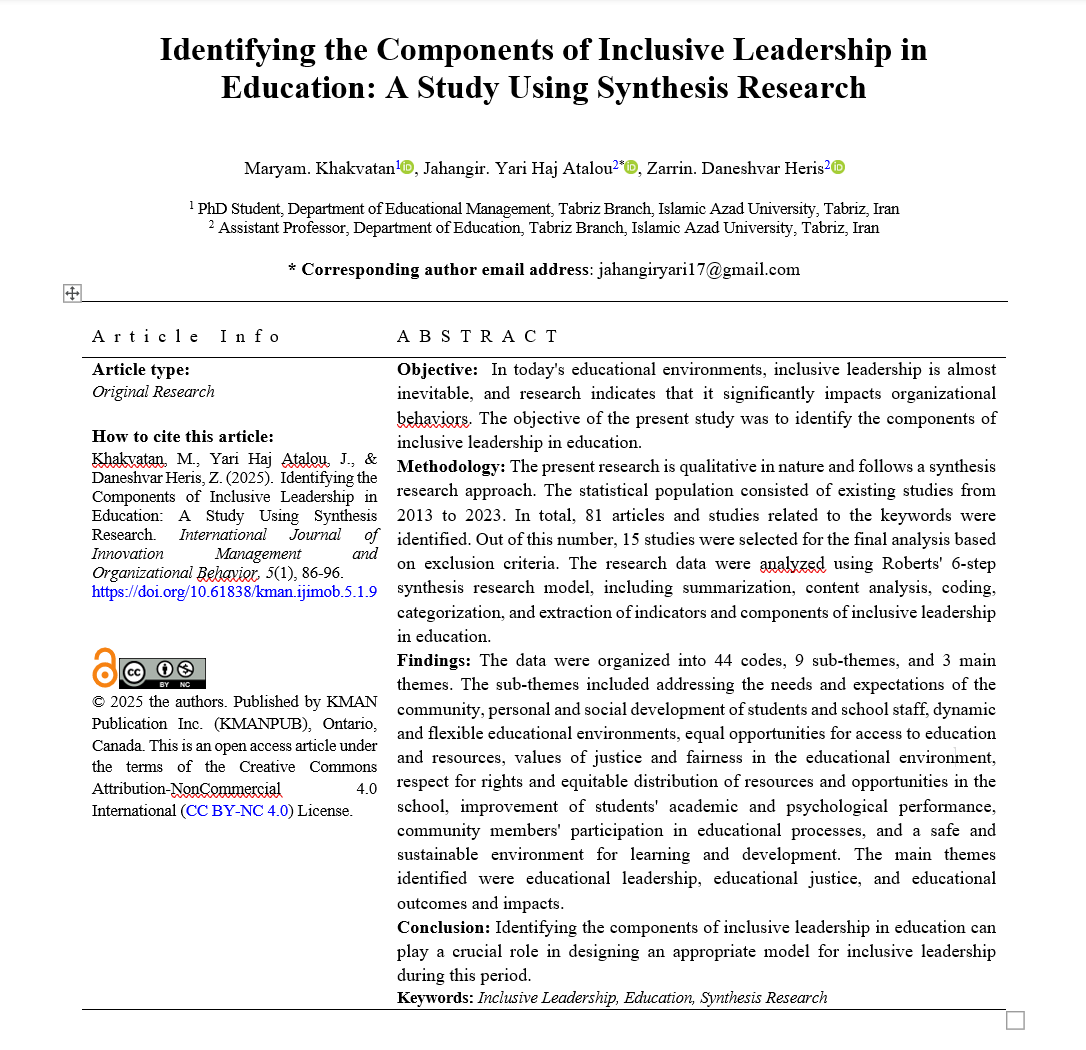Identifying the Components of Inclusive Leadership in Education: A Study Using Synthesis Research
Keywords:
Inclusive Leadership, Education, Synthesis ResearchAbstract
Objective: In today's educational environments, inclusive leadership is almost inevitable, and research indicates that it significantly impacts organizational behaviors. The objective of the present study was to identify the components of inclusive leadership in education.
Methodology: The present research is qualitative in nature and follows a synthesis research approach. The statistical population consisted of existing studies from 2013 to 2023. In total, 81 articles and studies related to the keywords were identified. Out of this number, 15 studies were selected for the final analysis based on exclusion criteria. The research data were analyzed using Roberts' 6-step synthesis research model, including summarization, content analysis, coding, categorization, and extraction of indicators and components of inclusive leadership in education.
Findings: The data were organized into 44 codes, 9 sub-themes, and 3 main themes. The sub-themes included addressing the needs and expectations of the community, personal and social development of students and school staff, dynamic and flexible educational environments, equal opportunities for access to education and resources, values of justice and fairness in the educational environment, respect for rights and equitable distribution of resources and opportunities in the school, improvement of students' academic and psychological performance, community members' participation in educational processes, and a safe and sustainable environment for learning and development. The main themes identified were educational leadership, educational justice, and educational outcomes and impacts.
Conclusion: Identifying the components of inclusive leadership in education can play a crucial role in designing an appropriate model for inclusive leadership during this period.
Downloads

Downloads
Additional Files
Published
Submitted
Revised
Accepted
Issue
Section
License
Copyright (c) 2024 Maryam khakvatan, Jahangir Yari Haj Atalou, Zarrin Daneshvar Heris (Author)

This work is licensed under a Creative Commons Attribution-NonCommercial 4.0 International License.















